pharmacology biochemistry physiology and toxicology
PHARMACOLOGY
Study of the functional role – and pharmacological modulation – of molecular and cellular targets involved in the pathogenesis and progression of cardiovascular, neurological, respiratory, gastrointestinal, genitourinary, endocrine-metabolic diseases and cancer. In vitro cell models (primary and line cell cultures, 2D and 3D) and in vivo animal models (genetic, chemical or iatrogenic, surgical models) reproducing human diseases are used by the different research groups. An important and transversal research line is the pharmacology and potential therapeutic applications of naturally-occurring compounds, including dietary components and products commonly known as nutraceuticals.
Research groups:
- APG
The research field of APG (Advanced Pharmacology Group) is focused on the study of cellular, molecular, and functional mechanisms in the onset and progression of inflammatory/immune based-vascular, metabolic, neurodegenerative, respiratory, genito-urinary, and cancer diseases. The main research topics evaluate the role of: gasotransmitters; sphingolipids; cyto-chemokines; prostanoids, using an in vitro-in vivo integrated approach, on animal and human tissues, to develop new therapeutic strategies.
D'EMMANUELE DI VILLA BIANCA Roberta
- IDEALCARE
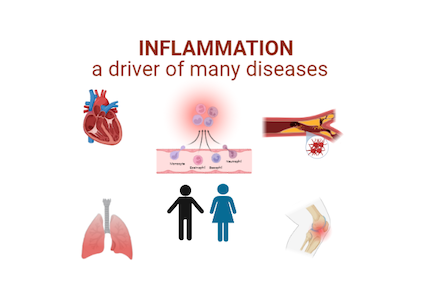
Current research activities address the study of immuno-inflammatory events involved in cardiovascular (atherosclerosis, hypertension, heart failure, thrombosis) and pulmonary (bronchial asthma, pulmonary fibrosis) pathologies as well as the understanding of the role of sex in these pathologies and the evaluation of the influence of such differences in response to anti-inflammatory drugs. For these purposes we use both in vitro and in vivo experimental models, as well as clinical databases.
Research Team:
- IBD-CRC Lab
The scientific activity is focused on the identification of molecular targets involved in colon cancers and inflammatory bowel diseases. The main lines are:
1. TRP receptors (in particular TRPV3 and M8) in preclinical experimental models of colon carcinogenesis and intestinal inflammation
2. Acylethanolamides (and their synthesis and degradation enzymes) in intestinal fibrosis and obesity associated colon cancer
Research Team:
PAGANO Ester
- IANARO LAB
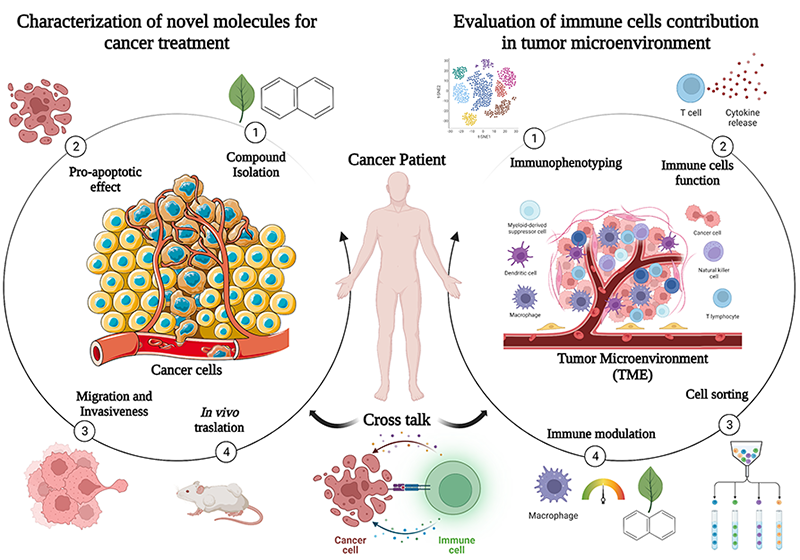
Our research focuses on the characterization of novel natural-derived and synthetic molecules for cancer treatment and its associated inflammatory processes by using both in vitro and in vivo approaches. Furthermore, the use of samples from patients and tumour mouse models allows us to evaluate the contribution of immune cells in the tumour microenvironment and how their activity can be modulated in order to optimise current immunotherapy strategies.
Research team:
- NATURPHARMA
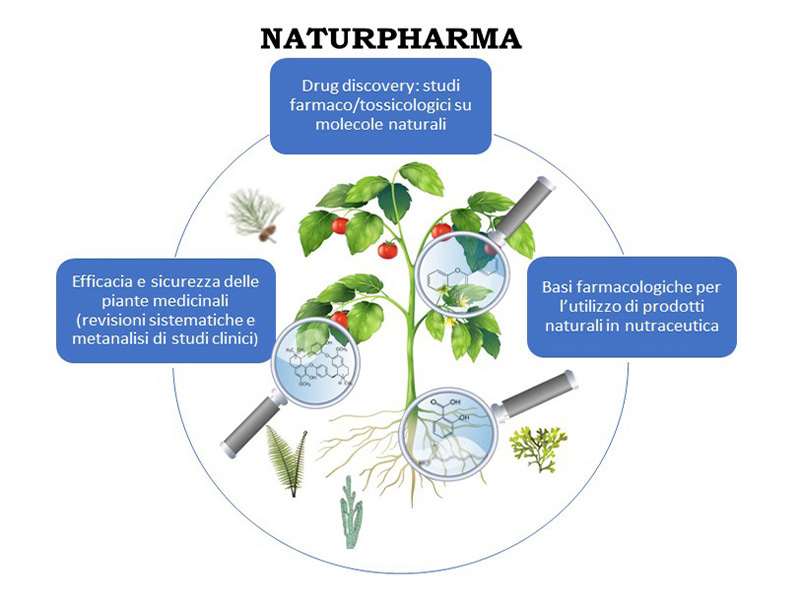
The main lines of research focus on:
i) Pharmacological/toxicological studies on natural molecules in the context of drug discovery and for their use in phytotherapy (or as food supplements), with particular reference to their relevance in functional, inflammatory and tumoural gut diseases (IBS, IBD, CRC).
ii) Efficacy and safety (including drug interactions) of medicinal plants by conducting systematic reviews and meta-analyses of clinical trials.
Research team:
- PHAMED
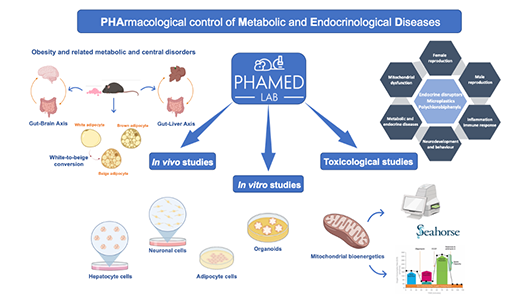
The PHAMED group studies and identifies the possible pharmacological and toxicological targets in endocrine-metabolic diseases based on inflammation and immune system alteration. To this purpose in vitro and in vivo models and techniques are used. The topics of PHAMED research are gut-brain axis and hepatic and extra-hepatic systems (i.e. gut-liver axis, adipose tissue); the modulation of endocrine factors and hormones, their cross-talk and signal transduction pathways are evaluated at both central and peripheral levels.
Research Team:
- COMPAGINE

COMPAGINE is a multidisciplinary research group, which studies pharmacological targets amenable of therapeutic intervention in pain, inflammation-based gastrointestinal diseases and neurological and neurodevelopmental, disorders. By means of animal models of behaviour, microsurgery, proteomic and genomic screening, and microscopy, our research group focuses on neurotransmission and immune-metabolic functions regulating the bidirectional gut-brain communication.
Research Team:
MOLECULAR BIOCHEMISTRY
Study of the molecular basis underlying the pathogenic mechanisms of cancer and chemoresistance with the aim to develop new targeted therapies, production of engineered cells for personalized therapeutic strategies and characterization of the bioactivity of new molecules of pharmaceutical interest (uptake, cytotoxicity, molecular pathways activated). The methodological approaches involve experimental models in vitro (2D/3D cell cultures) and in vivo (CAM assay and animal models).
Research groups:
- BiocheMol
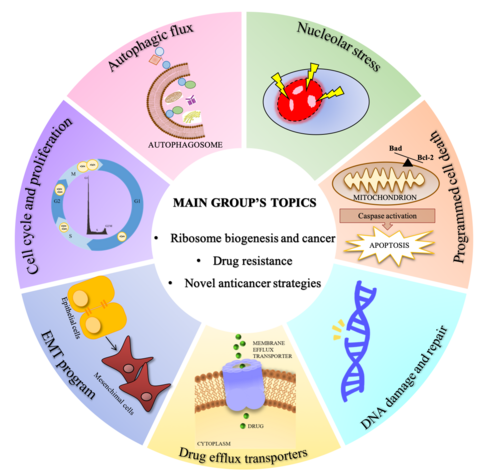
Study of the molecular basis underlying carcinogenesis and nucleolar stress with the aim of developing new targeted therapies. Role of ribosomal proteins in cell growth control within the context of pathways that lead to processes such as cancer and drug resistance. Identification of novel mechanisms of chemoresistance for the development of personalized therapeutic approaches. The methods involve experimental models in vitro (production of 2D/3D engineered cell lines) and in vivo (CAM assay and animal models).
Research Team:
- BioChemLab

The main research topics of the BioChemLab are oriented to the study of tumors through specific preclinical experimental models. They mainly concern: i) study of biochemical pathways involved in the survival/death of cancer cells with the aim of developing new therapeutic strategies with high specificity and reduced toxicity; ii) preclinical development of ruthenium-based nanosystems for anticancer therapy and study of the relationship between iron metabolism, carcinogenesis, drug response and chemo-resistance; iii) evaluation and characterization of the bioactivity of new compounds of pharmaceutical interest.
Research Team:
PHYSIOLOGY AND NEUROBIOLOGY
Study of the cellular, molecular, and the functional mechanisms underlying brain plasticity during development, adult life and nervous system disorders in rodent models (autism spectrum and neurodevelopmental disorders, Parkinson's disease and Alzheimer's, chronic stress and anxiety models), through in vivo (behavior), ex vivo (brain tissues) and in vitro (neuronal and organotypic cultures) methods.
Research groups:
- PhyNe
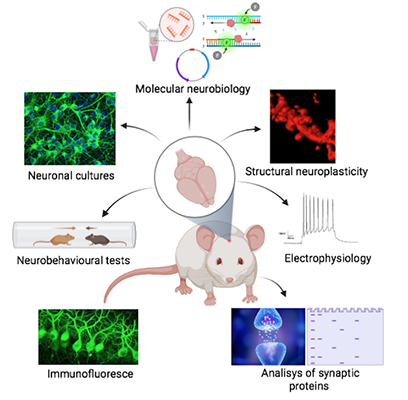
The Physiology and Neurobiology group studies the cellular, molecular, and the functional mechanisms underlying brain plasticity during development, adult life and nervous system disorders in rodent models (autism spectrum and neurodevelopmental disorders, Parkinson's disease and Alzheimer's, chronic stress and anxiety models), through in vivo (behavior), ex vivo (brain tissues) and in vitro (neuronal and organotypic cultures) methods.
Research Team:
TOXICOLOGY OF BIOLOGICALLY OF BIOLOGICALLY ACTIVE SUBSTANCES, ENVIRONMENTAL TOXICOLOGY AND ECOTOXICOLOGY
In vitro and in vivo analysis of the tolerability and toxic mechanisms of drugs and bioactive molecules of natural or synthetic origin. Furthermore, the toxic mechanisms of persistent environmental pollutants causing bioaccumulation and biomagnification phenomena are evaluated. Particular attention is given to the analysis of the interference with the endocrine and immune systems and alterations in the cellular metabolic pathways. In parallel, the input, fate and effects of toxins and xenobiotics in different environmental compartments are assessed.
Research groups:
- ECOLAB
The research activity concerns the assessment of structure, composition and functioning of natural, managed and anthropic ecosystems. Special attention is given to terrestrial ecology, soil functioning, plant-soil relationships, and biodiversity assessment and conservation. Research involves the identification of suitable chemical, physical and biological indicators and the formulation of new synthetic indices of environmental quality. Gas chromatography, spectrophotometry, spectrometry, NMR, microscopy and molecular analysis are used for the researchs.
Research Team: